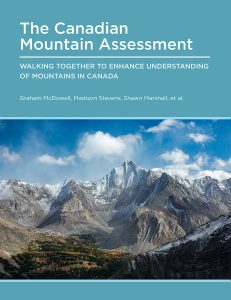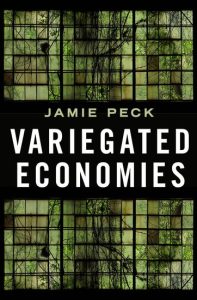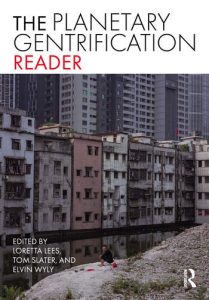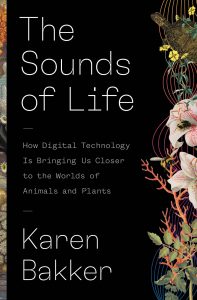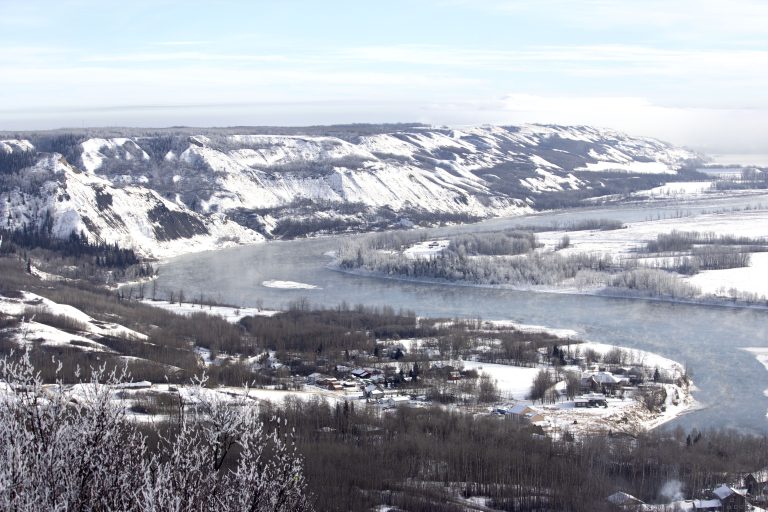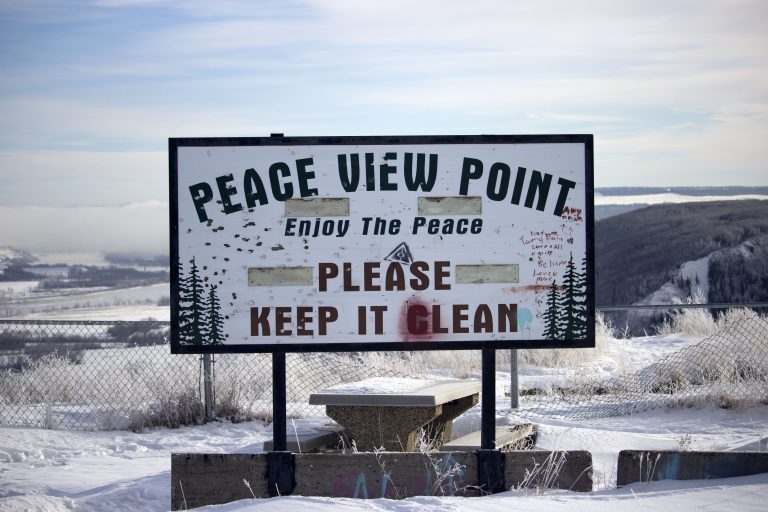Posted on June 18, 2025
Canada Excellence Research Chair in Cultures & Ecosystem at Risk – University of British Columbia
The Department of Geography at the University of British Columbia (Vancouver) is recruiting a Leading Edge Endowment Fund (LEEF) Chair in Cultures and Ecosystems at Risk, a senior appointment at the advanced associate or full professor rank targeted at a world-leading ecosystem scientist. The LEEF is a multi-million-dollar endowment created by the Government of British Columbia (BC) to assist a total of 20 permanent BC Leadership Research Chairs at research universities throughout the province. The LEEF Chairs are designed to attract world-class faculty, strengthen British Columbia’s capacity for innovative research and position the province as a leader in the knowledge-based economy. A faculty appointment at UBC is subject to university approvals and will be contingent on approval by Innovation BC.
The appointee to the LEEF Chair will be nominated for the Canada Excellence Research Chair (CERC). The CERC program, Canada’s highest research chair appointment, is designed to attract and support world-renowned researchers and their teams to Canada. The CERC nomination is subject to review and final approval by the CERC Secretariat. The CERC award, if successful, provides for $500,000 per year for eight years.
This appointment presents a unique opportunity for a leading researcher focused on understanding and forecasting the impacts of global environmental change on species and ecosystems at risk. The successful candidate will lead a research team focused on the development and implementation of methods to enhance informed, adaptive management decisions for conservation, forestry, and/or ecosystems. Competitive candidates will bring expertise in their domain knowledge (e.g., dendrochronology, population and community ecology, ecophysiology, ecosystem science), advanced skills in data fusion and mixed methods, and importantly, their experience in translation of knowledge and collaboration with local communities. We envision that the successful candidate will establish connections within ecosystem management in British Columbia, engage with Indigenous groups, industry, government, and other community organizations, and collaborate to develop solutions for ecosystems at risk. The CERC nomination reflects the urgent need for Canada to enhance its leadership role in addressing the deepening crisis of climate change, with a focus on ecosystem science. This CERC position aligns with federal Science, Technology, and Innovation Priorities in “Clean, Sustainable and Prosperous Canada” and “Technologically Advanced Canada”; expertise in one or more of the published priority areas will be given preference (https://www.cerc.gc.ca/program-programme/priority_areas-domaines_prioritaires-eng.aspx).
UBC as a leader
The University of British Columbia (UBC) is consistently ranked among the top 20 public universities in the world and is a renowned global centre for teaching, learning and research. Since 1915, UBC has been opening doors of opportunity for people with the curiosity, drive, and vision to shape a better world. Today, our students, faculty, and staff come from around the world, and our international research partnerships and publications help us collaborate on a global scale. UBC is proud to nurture and transform the lives of more than 65,000 students from Canada and over 140 countries worldwide.
UBC has world-class research strength in ecology, biogeography, forestry, and climate change science, and consistently ranks as the #1 university in Canada and in the top 15 globally for Geography, Ecology, and Environmental Sciences. Of note, multiple centres on campus focus on biodiversity, climate change science, and climate policy, including the Biodiversity Research Centre, the Centre for Climate Justice, the Climate Solutions Research Collective, and the Interdisciplinary Biodiversity Solutions Collaboratory. The UBC Department of Geography is one of the most academically diverse and productive departments of its kind in the world, encompassing a wide range of disciplines and subdisciplines, from economic geography to political ecology, atmospheric science, and ecology, representing a unique interface between the natural and social sciences. The department and university will provide the appointee with a broad intellectual context and cutting-edge tools to explore interdisciplinary research questions.
The successful candidate will:
- have a PhD (or equivalent) in a relevant discipline as part of the UBC requirement;
- be an internationally recognized leader of an impactful research program with interdisciplinary reach, preferably with at least 10 years of post-PhD research experience in ecosystem science and/or forecasting global change impacts on species and ecosystems at risk;
- have demonstrated excellent leadership capacity in research and teaching that is creative, innovative, and collaboration-based;
- have a strong commitment to equity, diversity, and inclusion and to creating a welcoming community where those who are historically, persistently, or systemically marginalized are treated equitably, feel respected, and belong. UBC recognizes that inclusion is built through individual and institutional responsibility, achieved by continuous engagement with diversity, to inspire people, ideas, and actions for a better world. As Canada’s highest research chair appointees, UBC CERCs will have a unique and profound impact on our commitments to these values;
- lead a strong, externally-funded research program to supervise graduate and undergraduate students and postdoctoral fellows, collaborate with other faculty members, and actively participate in teaching and service to the Department, University, and academic/scientific community.
The CERC nomination is subject to review and final approval by the CERC Secretariat
The appointee will serve as a tenured faculty member in the Department of Geography. It is expected the appointee must be Full Professors or Senior Associate Professors who are expected to be promoted to Full Professor within one or two years of nomination. Appointees from outside the academic sector must possess the qualifications necessary to be appointed at these levels. The anticipated start date will be July 1, 2026, or a date to be mutually agreed upon within 12 months after the notice of the award in Spring 2027 provided that all parties have signed acceptance. The expected pay range for this position is $16,667-$20,833/month. The salary will be commensurate with qualifications and experience and is subject to final budgetary approval. Competitive start-up packages, relocation, and housing assistance will be provided. For CERC awardees, substantial infrastructure funds are available through the John R. Evans Leaders Fund (JELF).
Please note: The start date of the LEEF Chair is July 1, 2026. The successful applicant will be required to prepare a CERC package by January 12, 2026, UBC’s internal deadline for the March 1, 2026 CERC deadline. The earliest anticipated start date for the CERC is April 1, 2027.
Program nominees are not restricted by their nationality or their country of residence. Non-Canadian Chairholders may work in Canada under the procedures of Employment and Social Development Canada and Immigration, Refugees, and Citizenship Canada. In some cases, a work permit may be expedited.
Equity and diversity are essential to academic excellence
UBC hires based on merit and is committed to employment equity. Equity and diversity are essential to academic excellence. An open and diverse community fosters the inclusion of voices that have been underrepresented or discouraged. Inclusion is built through individual and institutional responsibility, achieved by continuous engagement with diversity, to inspire people, ideas, and actions for a better world. We encourage applications from members of groups that have been marginalized on any grounds enumerated under the B.C. Human Rights Code, including sex, sexual orientation, gender identity or expression, racialization, disability, political belief, religion, marital or family status, age, and/or status as a First Nation, Metis, Inuit, or Indigenous person.
We also encourage applicants for the CERC position to complete the https://ubc.ca1.qualtrics.com/jfe/form/SV_cUvl7PKtt6aSW6W in alignment with the institution’s commitment to creating an equitable and diverse environment that fosters academic excellence. Personal information is collected under the authority of sections 26(a), 26(c), and 26(e) of the BC Freedom of Information and Protection of Privacy Act. The Equity & Inclusion Office will collect data, and all responses will be stored in a secure database. The information collected will be for program-level reporting.
UBC is committed to creating and maintaining an inclusive, non-discriminatory, and accessible work environment for all members of its workforce. UBC is also committed to ensuring that the application and interview process is accessible to all applicants. If you require accommodations or have questions about UBC benefits, services, or accommodations policies, please contact Sue Lebrun at sue.lebrun@ubc.ca in Workplace Health Services and also please visit UBC’s Center for Workplace Accessibility website at https://hr.ubc.ca/health-and-wellbeing/workplace-accessibility/centre-workplace-accessibility
The UBC Vancouver campus is situated on the traditional, ancestral, and unceded territory of the Musqueam people. UBC is dedicated to being a world leader in the implementation of Indigenous people’s human rights and is guided by a mission of reconciliation as articulated and called for by the Truth and Reconciliation Commission of Canada. It is firmly committed to recruiting Indigenous faculty, students, and staff as outlined in its Indigenous Strategic Plan. As one of the world’s leading universities, UBC creates an exceptional learning and research environment that fosters global citizenship and advances a civil and sustainable society to serve the people of British Columbia, Canada, and the world.
UBC recognizes the legitimate impact that leaves (e.g., maternity leave, parental leave, leaves due to illness, leaves due to caring for family members, slowdowns due to chronic illness or disability, or COVID-19 impacts) can have on research achievement and commits to ensuring that leaves are taken into careful consideration during the assessment process. Candidates are encouraged to highlight in their application how career interruptions and personal circumstances have had an impact on their careers.
To apply:
Interested candidates must follow the application instructions at https://geog.air.arts.ubc.ca/position-000198210. Complete applications will include a detailed curriculum vitae, a two-page research statement, a two-page teaching statement, a two-page equity, diversity, and inclusion (EDI) statement, and the names and contact information of three references. As part of the application process, applicants will be asked to complete a voluntary employment equity survey.
Review of applications will begin on July 21, 2025.

